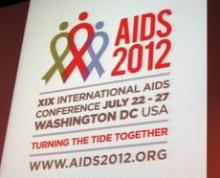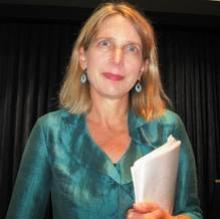In advance of the upcoming XIX International AIDS Conference, the International AIDS Society and the University of California, San Francisco, have issued the “Washington D.C. Declaration,” a nine-point action plan aimed at broadening global support for “Turning the Tide” of the AIDS epidemic.
Everyone is urged to sign the Declaration.
It calls for:
1) An increase in targeted new investments;
2) Evidence-based HIV prevention, treatment, and care in accord with the human rights of those at greatest risk and in greatest need;
3) An end to stigma, discrimination, legal sanctions, and human rights abuses against those living with and at risk for HIV;
4) Marked increases in HIV testing, counseling, and linkages to services;
5) Treatment for all pregnant and nursing women living with HIV and an end to perinatal transmission;
6) Expanded access to antiretroviral treatment for all in need;
7) Identification, diagnosis, and treatment of tuberculosis;
8) Accelerated research on new tools for HIV prevention, treatment, vaccines, and a cure;
9) Mobilization and meaningful involvement of affected communities.
Turning the Tide is the theme of this year’s biennial conference, which will take place July 22-27 in Washington. It is expected to draw 25,000 attendees, including HIV professionals, activists, politicians, and celebrities. Sir Elton John will open the conference and Bill Clinton will close it. A large delegation of U.S. members of Congress will participate, and Bill Gates will moderate a session. An enormous “Global Village” outside the D.C. Convention Center will be open to the public. “If you haven’t been, it’s a conference like no other,” conference cochair Dr. Diane V. Havlir said at a press briefing.
The recent optimism regarding HIV/AIDS stems from major advances in knowledge regarding prevention of partner transmission with early patient treatment, pre-exposure prophylaxis, and male circumcision as HIV infection prevention (new data will be released at the meeting), all of which are viewed as breakthroughs in the fight against HIV/AIDS. “So we have now in our hands the tools. The question is how do we combine those tools together, and how do we roll them out,” said Dr. Havlir, professor of medicine at the University of California, San Francisco, and chief of the HIV/AIDS division at San Francisco General Hospital.
Monday’s plenary session will include an address from Dr. Anthony Fauci, head of the National Institute of Allergy and Infectious Diseases, on “Ending the HIV Epidemic: From Scientific Advances to Public Health Implementation.” Other plenary topics during the week will include viral eradication, vaccines, TB and HIV, and HIV/AIDS in specific populations including minorities, women, youth, and men who have sex with men. On Friday, there will be a plenary talk that may be of particular interest to the primary care community, “The Intersection of Noncommunicable Diseases and Aging in HIV.”
Plenaries and other conference sessions will be webcast at http://globalhealth.kff.org/aids2012.
-Miriam E. Tucker (@MiriamETucker on Twitter)



